FAQ
Here's a FAQ for travellers planning to visit Tanzania:
Yes, most travellers will need a visa to enter Tanzania. You can apply for an e-visa online before you travel or get a visa on arrival at the airport. Be sure to check the visa requirements for your nationality on the official Tanzanian government website before traveling.
While there are no mandatory vaccinations for entry into Tanzania, the Yellow Fever vaccine is required if you are arriving from a country with a risk of Yellow Fever. Other recommended vaccines include:
o Hepatitis A & B
o Typhoid
o Rabies (for extended stays or high-risk areas)
o Malaria prophylaxis is also strongly recommended, especially if you’re visiting rural areas or during the rainy season.
The dry season (June to October) is the best time for wildlife viewing and safaris, particularly in Serengeti National Park and Ngorongoro Crater. The Great Wildebeest Migration usually occurs during these months. The wet season (November to May) is a good time to visit for fewer crowds, lush landscapes, and bird-watching.
The local currency is the Tanzanian Shilling (TZS). US dollars are widely accepted, especially in tourist areas, hotels, and for safaris. Major cities have ATMs where you can withdraw shillings. Credit cards (Visa and Mastercard) are accepted in major hotels and restaurants, though cash is preferred in rural areas.
Tanzania is generally considered a safe country for tourists, especially in popular areas like Zanzibar, Arusha, and the Serengeti. However, like in any destination, travelers should take precautions such as:
o Avoiding walking alone at night.
o Keeping valuables secure.
o Using licensed taxis or hotel transport.
The official languages of Tanzania are Swahili and English. English is widely spoken in tourist areas, hotels, and by safari guides. Learning a few basic Swahili phrases can enhance your experience.
· Mount Kilimanjaro: The tallest mountain in Africa and a popular destination for trekkers.
· Serengeti National Park: Known for its incredible wildlife and the Great Migration.
· Ngorongoro Crater: A UNESCO World Heritage site with diverse wildlife.
· Zanzibar: Famous for its stunning beaches, spice tours, and rich cultural history.
· Tarangire and Lake Manyara National Parks: Great for safaris and bird-watching.
· For safaris: Light, breathable clothing in neutral colors (avoid bright colors); a hat, sunscreen, sunglasses, and sturdy shoes. Bring binoculars and a camera for wildlife viewing.
· For climbing Kilimanjaro: Warm layers, a good sleeping bag, hiking boots, and rain gear.
· For beaches: Light clothing, swimwear, and sunscreen.
· Don’t forget to pack any necessary medications, insect repellent, and copies of your important travel documents.
Tanzania operates on East Africa Time (EAT), which is GMT+3. Tanzania does not observe daylight saving time.
· Domestic flights are a popular and convenient way to travel between major cities and national parks. Bus services and taxis are also available in cities and towns. For safaris, most visitors arrange 4×4 vehicles with tour companies.
· In Zanzibar, you can get around by taxi, rental cars, or “dala-dalas” (shared minibusses).
· Tipping is appreciated but not mandatory. Common guidelines include:
o Safari guides: $10–$15 per person, per day.
o Lodge/hotel staff: $1–$2 per day for housekeeping, and porters.
o Restaurants: 5–10% of the bill.
· Tanzania uses a 230V supply voltage and 50Hz. The plug types commonly used are Type D and Type G (same as the UK). Travelers from the US, Canada, or other countries may need a voltage converter and plug adapter.
· Yes, Zanzibar is a semi-autonomous region of Tanzania, consisting of several islands, the largest being Unguja and Pemba. You can travel to Zanzibar by domestic flight or ferry from Dar es Salaam. No separate visa is needed if you’re already in Tanzania.
· Tanzanian cuisine is diverse, featuring dishes like ugali (a maize-based staple), nyama choma (grilled meat), and pilau. On the coast, especially in Zanzibar, seafood is popular, along with spiced rice and coconut curries.
· No, it is not safe to drink tap water in Tanzania. Stick to bottled or filtered water, which is widely available. Be cautious of ice in drinks unless you are sure it has been made with purified water.
· Solo travel is generally safe in Tanzania, especially in well-touristed areas. However, female travelers should be mindful of local customs, dress modestly, and take usual travel precautions such as avoiding isolated areas at night and keeping belongings secure.
Tanzania is a conservative country, especially in rural areas and Zanzibar, where Islam is predominant.
o Dress modestly, particularly when visiting religious or rural areas.
o Greetings are important; a polite “Jambo” (hello) or “Habari” (how are you) is appreciated.
o Avoid public displays of affection, especially in more conservative areas.
Note: Always check current travel advisories, health guidelines, and entry requirements before your trip to Tanzania.

